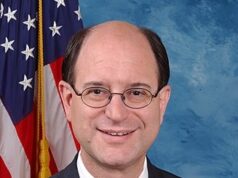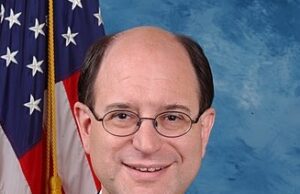No Easy Answers to Question of Fracking: Debaters Actually Agree on Many Issues
Chicago – November 13, 2013 – (RealEstateRama) — Fracking* — one of today’s most hotly debated issues — took center stage in San Francisco at the recent annual convention of The Counselors of Real Estate, an invitation-only professional association for senior level commercial real estate advisors.
CRE in National News |
CRE in Social Media |
Robert F. Kennedy, Jr., noted environmentalist and president, Waterkeeper Alliance, and James J. Curtis III, CRE, managing partner of Bristol Group, a San Francisco real estate investment and development firm, concurred there are no easy answers in this ongoing debate. In the “To Frack or Not to Frack” session, both speakers agreed on many points, including the need for U.S. energy independence and a better way to get there than exists today, to ensure the safety of future generations..
Kennedy, a one-time fracking advocate, converted to opposing the process when he became aware of research and first-hand testimony of dangers associated with fracking.
Kennedy pointed to effects of fracking on local communities, ranging from forest fires to air pollution to water contamination. “It’s a witches’ brew that comes out of the drill hole,” he said, describing the chemicals commonly used in the fracking process. While acknowledging that natural gas drillers transport waste away from the well where fracking takes place, he believes the process has both immediate risk and significant future impact on the environment.
According to Kennedy, in addition to obvious environmental contamination, “Trucks taking waste away from drilled wells to sewage plants weigh 40,000 pounds each, running through a community.” He explained that the entire area suffers from the traffic and noise, as well as traffic accidents that can spill chemicals into the ground, sometimes resulting in contaminated local rivers and water supplies. He also said the gas industry has no legal responsibility for repairing the roads damaged by heavy truck traffic; rather, the community itself bears the responsibility.
Curtis stopped short of advocating fracking, but noted inconsistencies in U.S. attitudes toward sustainability and the environment. He said Americans are proponents of buying local, using as an example the growing endorsement of the farm-to-table concept — yet an enormous amount of the U.S. energy supply is sourced from across the globe. He said real estate developers need to obtain building materials within a 500-mile radius in order to attain LEED certification, yet communities and states place major restrictions on domestic energy production, including restricting fracking performed by the natural gas industry. “It’s the ultimate ‘not-in-my-backyard’ NIMBY-ism,” he said. “It’s ‘not in my continent’.”
Pointing to natural gas production as an increasing source for electricity generation (as reported by the U.S. Energy Information Administration) and the decreasing role of coal to fuel electric power, Curtis cited these as positive trends which lower air pollution. However, he conceded, “We should have much more oversight” of the natural gas industry, noting that “they are drilling wells without the baseline data that a real estate developer would need.” Curtis noted that six to ten percent of gas wells leak during the first year, and almost all leak in later years due to structural failure. Yet he also noted that because of natural gas consumption replacing coal power, carbon dioxide emissions from U.S. energy consumption have dropped 12 percent in recent years, with emissions at the lowest point in two decades.
When asked if nuclear power may be a smarter path to energy independence, Kennedy reminded the audience that land surrounding a nuclear reactor can be uninhabitable for decades or even centuries should a major accident occur.
Session moderator Peggy Otum, partner in the environmental group of San Francisco-based Arnold & Porter, ended the session by asking each speaker to leave the audience with one lasting thought about improving future energy solutions.
Kennedy said there is hope for energy independence, but it is likely undeveloped. He cited disruptive technology as a game changer, noting inspired ideas have transformed other industries at lightning speed. As an example, he pointed to flat screen TVs, which have eliminated vacuum tube televisions –noting the last vacuum tube factory closed three years ago. “Not only will new technology create a positive energy change in the future, but the cost will decrease as technology takes hold,” he said.
Curtis challenged the audience to “commit to making choices for a better world,” noting that “the most powerful energy source is decreasing your own energy usage.”
* Note: Fracking is short for hydraulic fracturing, an oil and gas industry process that creates fractures in rock by injecting chemicals and sand to increase the fracture size. This allows oil and gas to be more easily extracted. Fracking is often praised by its supporters for contributing to U.S. energy independence and creating jobs in parts of America where land is rich in natural resources. It is just as often attacked as an assault on the health and safety of nearby communities by environmentalists who believe groundwater and drinking water contamination can result from the practice.
The Counselors of Real Estate®, established in 1953, is an international group of high profile professionals including members of prominent real estate, financial, legal and accounting firms as well as leaders of government and academia who provide expert, objective advice on complex real property situations and land-related matters. Membership is selective, extended by invitation only. The organization’s CRE® (Counselor of Real Estate) credential is granted to all members in recognition of superior problem solving ability in various areas of real estate counseling. Only 1,100 people in the world hold the CRE credential. For more information, contact The Counselors of Real Estate, 430 N. Michigan Avenue, Chicago, IL 60611; 312/329.8427; http://www.cre.org
















